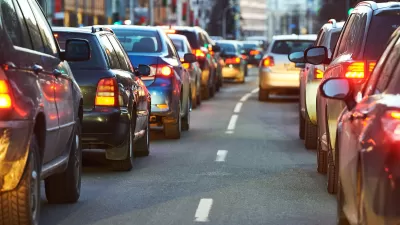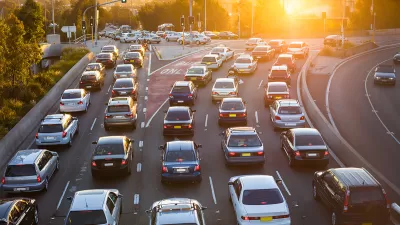According to an analysis of U.S. National Travel Surveys, the Millennial preference for non-automotive travel is mostly hype. Millennials show behavior similar to other age groups and respond to the economy.

Evelyn Blumenberg and Brian D. Taylor have heard the dominant narrative about the travel preferences of Millennials:
Among the many traits thought to make millennials unique is their travel. They drive less, ride public transit and bicycles more, and have a stronger desire to live in walkable urban communities. Or so the story goes.
But what if that story is wrong? Blumenberg and Taylor wondered the same thing and dug into the data for answers, examining data from the U.S. National Travel Surveys for 1990, 2001, and 2009, regarding "range of information on travel over time, detailed personal and household characteristics, and spatial information…" Their findings do indeed tell a different story:
In a nutshell, we found little evidence of a substantial cultural turn by millennials away from cars and suburbs. We found some evidence of generation-specific declines in driving among millennials, but the effects were modest. So what did have the biggest effect on millennial travel? The economy. Most of the drop in driving was likely due to the effects of the Great Recession.
To further elucidate the truth about Millennial mobility choices, the duo set out to answer eight questions, detailed further in the source article.
For more recent news on generational travel trends, see also a Planetizen post sharing the news about increasing vehicle miles traveled among young, low-income Americans.
FULL STORY: Millennial Travel: Who Knows About Kids These Days?

Alabama: Trump Terminates Settlements for Black Communities Harmed By Raw Sewage
Trump deemed the landmark civil rights agreement “illegal DEI and environmental justice policy.”

Study: Maui’s Plan to Convert Vacation Rentals to Long-Term Housing Could Cause Nearly $1 Billion Economic Loss
The plan would reduce visitor accommodation by 25% resulting in 1,900 jobs lost.

Planetizen Federal Action Tracker
A weekly monitor of how Trump’s orders and actions are impacting planners and planning in America.

Waymo Gets Permission to Map SF’s Market Street
If allowed to operate on the traffic-restricted street, Waymo’s autonomous taxis would have a leg up over ride-hailing competitors — and counter the city’s efforts to grow bike and pedestrian on the thoroughfare.

Parklet Symposium Highlights the Success of Shared Spaces
Parklets got a boost during the Covid-19 pandemic, when the concept was translated to outdoor dining programs that offered restaurants a lifeline during the shutdown.

Federal Homelessness Agency Places Entire Staff on Leave
The U.S. Interagency Council on Homelessness is the only federal agency dedicated to preventing and ending homelessness.
Urban Design for Planners 1: Software Tools
This six-course series explores essential urban design concepts using open source software and equips planners with the tools they need to participate fully in the urban design process.
Planning for Universal Design
Learn the tools for implementing Universal Design in planning regulations.
Caltrans
Smith Gee Studio
Institute for Housing and Urban Development Studies (IHS)
City of Grandview
Harvard GSD Executive Education
Toledo-Lucas County Plan Commissions
Salt Lake City
NYU Wagner Graduate School of Public Service





























